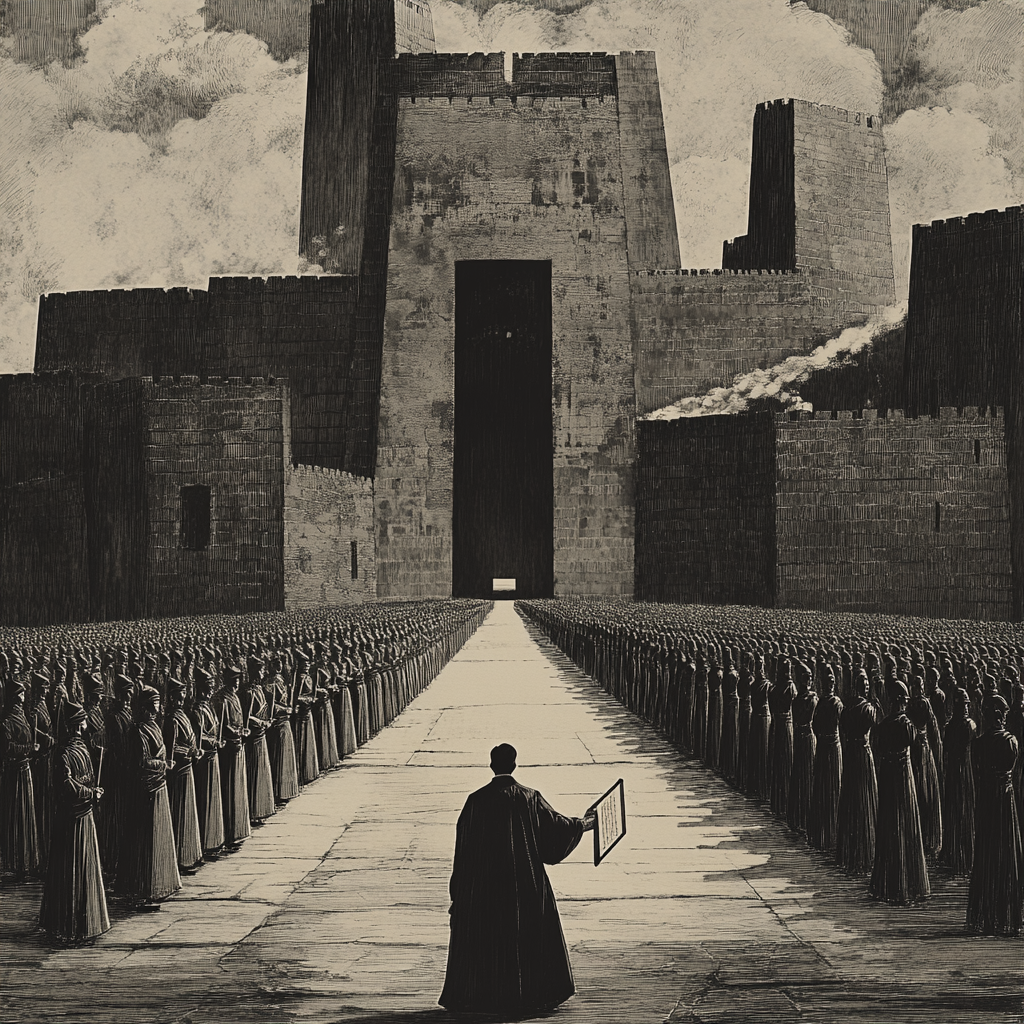The Philosophy of Law and Order in Ancient China starts with Legalism is one of the three major schools of thought that shaped ancient Chinese political philosophy, alongside Confucianism and Taoism. Founded primarily by Han Feizi (circa 280–233 BCE) and influenced by thinkers like Shang Yang and Li Si, Legalism offered a pragmatic and often harsh approach to governance. It emphasized the need for strict laws and centralized power to maintain order, arguing that human nature is inherently selfish and can only be controlled through rigid rules and severe punishments.
Legalism became particularly influential during the Qin Dynasty (221–206 BCE), which was the first to unify China under a centralized empire. Although the Qin Dynasty fell quickly due to the extremity of its Legalist policies, the philosophy left a lasting imprint on Chinese political thought.
Founder: Han Feizi and Key Thinkers
Han Feizi, the most prominent proponent of Legalism, articulated The Philosophy of Law in ancient China through his work, Han Feizi, which laid out the core principles of this school of thought. Born into a noble family, Han Feizi studied Confucianism but grew critical of its reliance on moral virtues as a means of governance, believing that only strict laws could bring order to society amidst the chaos of the Warring States period.
Other key Legalist thinkers include:
- Shang Yang (390–338 BCE), whose reforms in the state of Qin laid the groundwork for Legalist governance.
- Li Si (280–208 BCE), a prominent advisor to the first emperor of China, Qin Shi Huang, who helped implement Legalist policies on a national scale.
Core Ideas of Legalism
1. Rule of Law in Ancient China
At the heart of Legalism is the belief in the supremacy of the rule of law. Legalists argued that human nature is inherently selfish and short-sighted, and thus people cannot be trusted to act virtuously on their own. Instead, they must be governed by strict laws that are clearly defined and universally applied.
- Legalists believed that punishments for breaking laws should be severe to serve as a deterrent. Likewise, rewards for obeying the law or serving the state should be substantial. This balance of fear and reward was seen as the most effective way to ensure compliance.
2. Centralized Power and Governance
Legalism advocates for a strong, centralized government with a ruler who holds absolute power. The ruler should control all aspects of governance and use strict laws, rewards, and punishments to manage the population.
- Legalists rejected the idea that a ruler should be concerned with cultivating personal virtue, as Confucianism suggested. Instead, the ruler’s focus should be on maintaining order and strengthening the state.
- Legalism also emphasized the need for a highly structured bureaucracy, where officials are appointed based on merit and loyalty to the state rather than moral character or noble lineage.
3. Utilitarianism and the Strength of the State
Legalists were primarily concerned with the strength and stability of the state. They believed that all actions should be judged based on their contribution to the power and security of the state. For instance, war, strict discipline, and economic control were viewed as necessary tools for state-building.
- Utilitarianism in Legalism meant that anything which contributed to the state’s power was good, regardless of its moral implications. This pragmatic approach often resulted in harsh policies aimed at ensuring military and political dominance.
4. Skepticism of Morality in Governance
Unlike Confucianism, which emphasized moral education and the cultivation of virtues such as Ren (benevolence) and Li (ritual), Legalism was skeptical of relying on moral principles to govern society. Legalists believed that people are driven by self-interest and cannot be trusted to act according to a higher moral code.
- For Legalists, moral education and virtue were ineffective ways to ensure order. Instead, behavior should be controlled by external forces—namely, laws and punishments.
Influence of Legalism

Legalism had a profound influence on the governance of the Qin Dynasty, embodying The Philosophy of Law in ancient China, as it became the foundation for the first Chinese dynasty to unify the country. Qin Shi Huang, the first emperor, adopted Legalist policies under the guidance of his chief minister, Li Si. These policies included standardizing laws, weights, and measures, building massive infrastructure projects like the Great Wall, and enforcing strict control over the population.
However, the extreme measures of the Legalist state, such as heavy taxation, forced labor, and brutal punishments, contributed to widespread resentment and the eventual downfall of the Qin Dynasty. Despite this, many Legalist ideas persisted in Chinese political thought, particularly the emphasis on centralized authority and the importance of a strong legal framework.
Legacy of Legalism
Check out Living in Harmony with the Tao
While Legalism as a school of thought became less dominant after the fall of the Qin Dynasty, its influence on Chinese governance remained. The Han Dynasty, which followed the Qin, incorporated elements of Legalism into its administration, blending them with Confucian principles. This Legalist-Confucian synthesis became the foundation of Chinese imperial governance for centuries.
In modern times, Legalism has been studied as an early form of realpolitik—a pragmatic, often harsh approach to politics that prioritizes the power and security of the state over individual freedoms and moral ideals. Its emphasis on the rule of law and the importance of a strong central government resonates with certain political philosophies today, especially in discussions of authoritarianism and state control.
Legalism’s Enduring Impact
Legalism, with its emphasis on strict laws, centralized power, and utilitarian governance, offered a highly practical approach to ruling a state during times of instability. While its harsh measures led to the downfall of the Qin Dynasty, the core ideas of Legalism—particularly the importance of law and order—have had a lasting impact on Chinese political thought and continue to be relevant in discussions about governance and authority today.
Although often criticized for its rigidity and lack of emphasis on moral values, Legalism provides a valuable counterpoint to more idealistic philosophies like Confucianism and Taoism, reminding us of the complexities involved in maintaining order in society.

